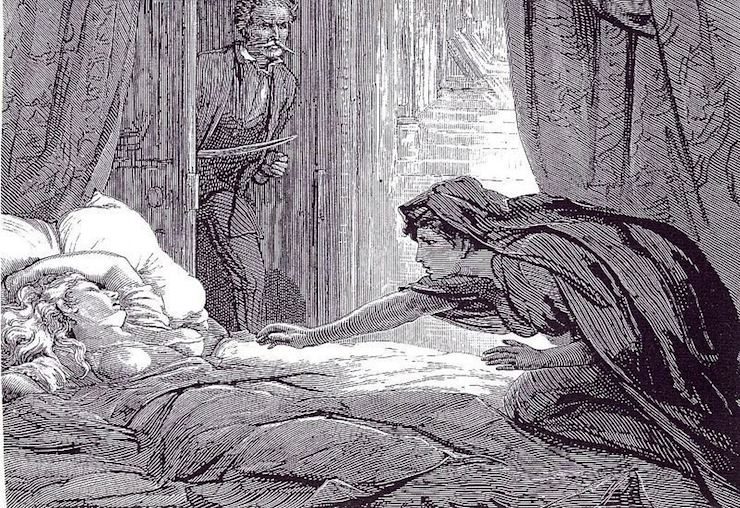Dracula is largely credited as the progenitor of all modern vampire fiction… but it would seem that Bram Stoker himself owes a debt to a book about a vampire named Carmilla.
Atlas Obscura‘s Mariana Zapata points to an 1871 novel written in Ireland by Joseph Sheridan Le Fanu, named after its vampiric leading lady. Told in the first person by her victim Laura, Carmilla is a tale of horror and seduction with many of the typical vampire story hallmarks–and a central relationship between its two main female characters.
It’s seems fairly certain that Stoker was aware of the novel, and used some of its trappings to frame his own book. Zapata notes the items that both novels have in common: the arrival of a vampire hunter who possesses important knowledge, the description of female vampires, first person narration from the victim’s perspective. The friendship between Laura and Carmilla, however, is what makes the predecessor such an intriguing affair–perhaps a more compelling one at that. Or as Zapata puts it:
But what makes Carmilla so endearing are not its similarities to other works of the genre, but its distinct differences. Most notably, the fact that the story is centered around two female characters, whose complicated relationship is colored by thinly veiled lesbian undertones.
It would seem that while Carmilla normally makes a point of never getting attached to her victims, she is deeply fond of Laura. She kisses the woman across her cheeks, and talks about how she will belong to her for all eternity. Not exactly the dialogue you would expect between “just good pals.”
Mallory Ortberg seemed to notice the same thing over at The Toast. Here is an excerpt from “Texts From Carmilla”:
hey Laura
yes, Carmilla?
how long would you say you would enjoy holding me
like forever, or still an amount less than that, like should i keep waiting
waiting for what, dear Carmilla?
like for example would you like to braid my hair even after you’re dead
or just until you are dead
I don’t understand
ahh sorry sorry sorry
until we’re BOTH dead i mean
Which means that while Dracula’s contribution to the genre will not be forgotten, it’s probably time to crack open copies of Carmilla and give credit to the vampiress and her fine female companion.










